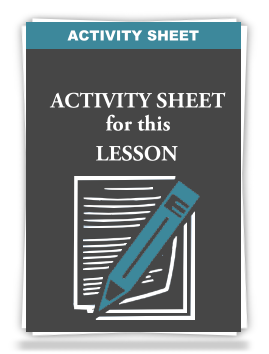- Home
- How I Help
- Overcoming “NO” in the Sales Process! [ARTICLE]
Overcoming “NO” in the Sales Process!
It has been said that the greatest defeater to selling success, is when the sales professional takes the “no” response from a suspect, prospect or customer personal. Sales Professionals that succeed understand that professional salesmanship begins when the “no” is presented into a conversation. Realize that when someone says “no”, that the specific words “no” are to the offer as they have just heard it, and not directed to the sales professional. The “no” is not a rejection to the sales professional as a person, the “no” is a rejection to the offer heard.
Remember, until you know what no means, don’t accept no. Every sales professional has heard the statistics that most prospects become customers and thus the sale takes place after the “N’th” rejection – you have to know your industry, marketplace, and deliverable to understand what the expected ‘no’s’ will be and have fact based responses conversationally at the ready. Professional Selling Power magazine carried an article were a study done by www.JeffreyMagee.com indicated that most sales take place after at least five rejections.
To accelerate ROI on your endeavors, recognize for both your personal efforts and the organizations efforts, identify the characteristics of the core customer base, who are they, where are they and how many more of them are there that are not being contacted.
The important question to know, is at what number “no” do they typically give up on a suspect, prospect or customer?
Think of “NO” as a question in hiding. “No” is merely a verbal response to an offer and the art and science of selling begins at the mention of a “no”. The question’s that a sells professional must begin asking at that moment are:
- Does “no” mean, not right now (timing issues)?
- Does “no” mean, I don’t have the money to buy it right now (revenue/budget--billing issues)?
- Does “no” mean, I don’t have authority (buying power/decision making ability)?
- Does “no” mean, we can’t use it or need it right now (appropriate need level for that specific offer only)?
- Does “no” mean, I don’t want to make the decision (decision makers are changing and your contact may be leaving and doesn’t want to get involved in the offer right now, maybe their predecessor may desire to do so…)?
- Does “no” mean I am not recognizing a compelling need that I have and a solution you represent?
Again, realize that until you “KNOW” what “NO” means, don’t accept “NO” without first engaging in a dialogue to determine precisely what is meant when the other person says, “no.”
Here are a few ideas for engaging the other person when they say “NO” next time to your offer …
One way to conversationally address the “No” when it appears in your next conversation, use a three-step conversational model called a Question-Bearing-Upon-A-Need. Start your response with a preface sentence when responding to someone that has just delivered a “no” response to you and which you feel may not be legitimate. Something like,
- “I can appreciate your concern with (insert what they just said as the “no”), let me ask you, if we can address this concern fairly would there be any other reason that would hold you back from considering my offer?”
- “The reason I mention this is, (insert a benefit statement that you have delivered to a previous prospect that recognized your value proposition and bought/joined/etc.), perhaps we can do the same for you, let me ask you a few questions.
- “May I ask you a few questions?” … And now defer to your consultative relationship seeking vetting questions.
Think of the word “no” as a question and push yourself to instantly mentally determine if you were to reframe their simple “no” into a question that they should be asking because of something you have either said or not said that has compelled them to say “no”, then what would that question be?
“Knowing” exactly what “no” means gives the sales professional conversation power in the selling process.





